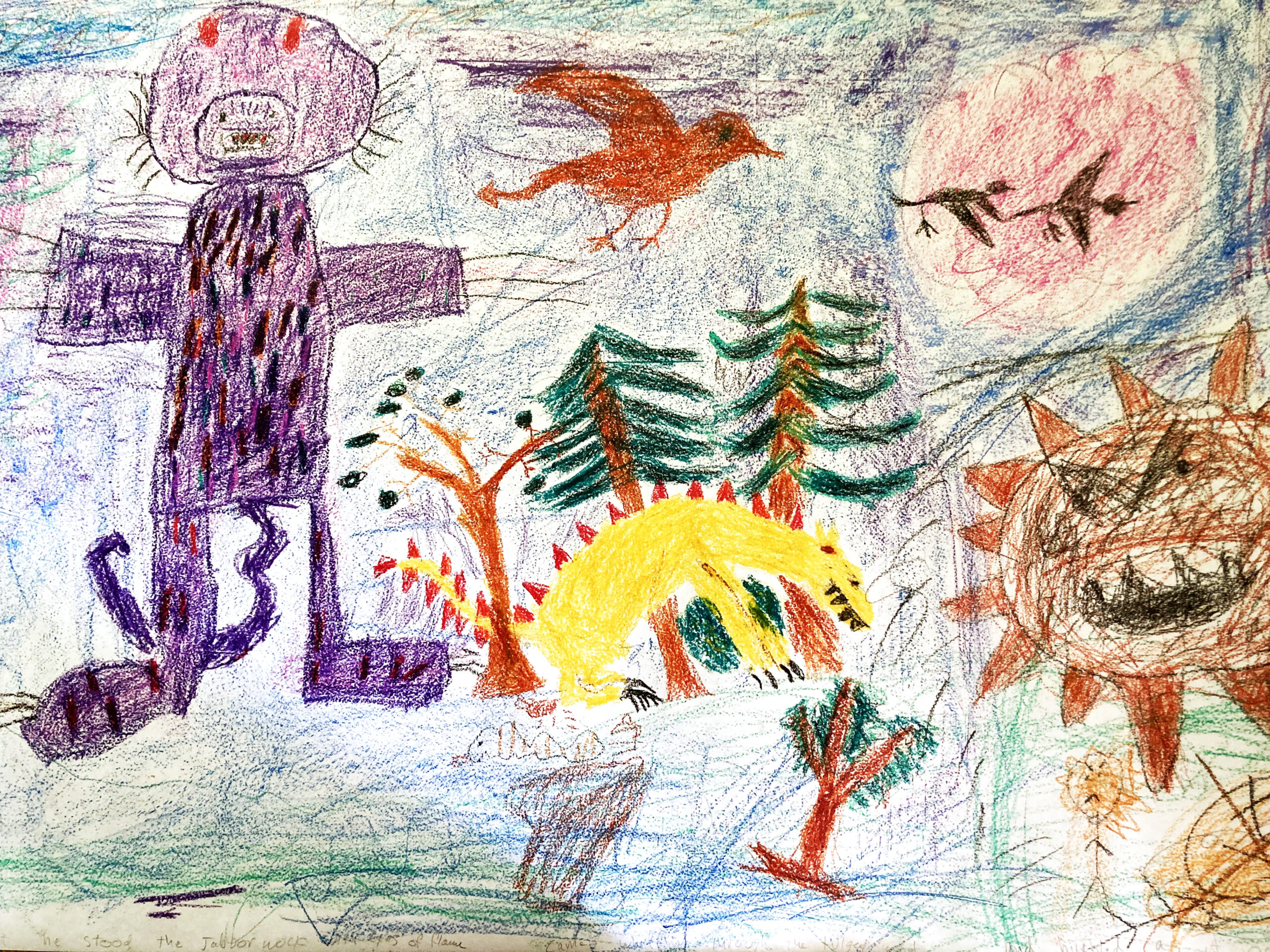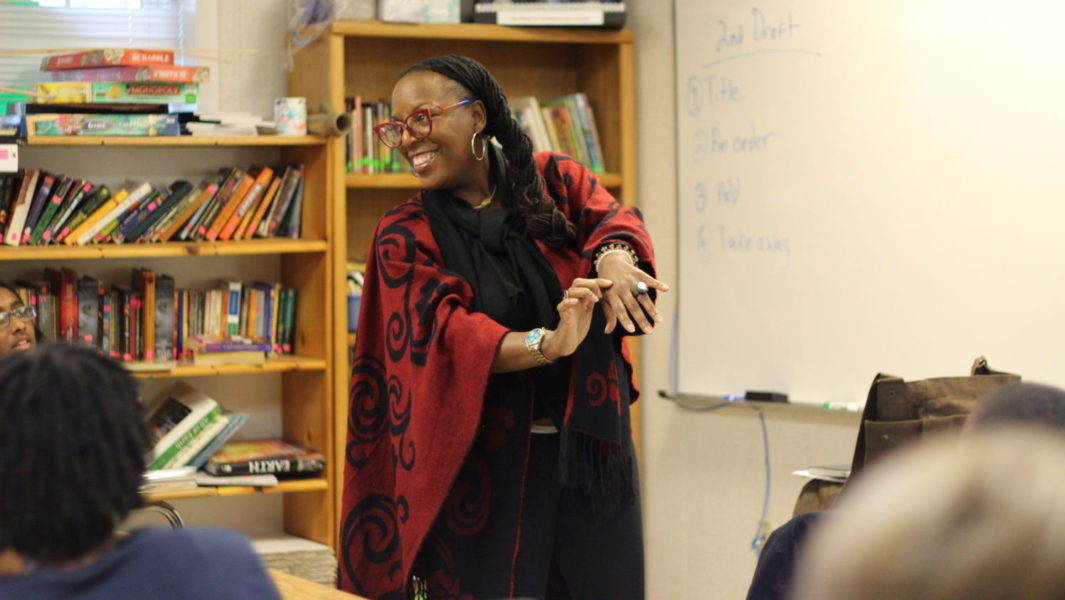The first time I taught Lewis Carroll’s “Jabberwocky,” I was a 24-year-old grad student in Missoula, Montana. I was hardly an adult myself. I rode my bike through the slushy streets all winter, feet out of my toe clips so I could put my foot down if I hit a patch of ice. I ate baguettes on Le Petit’s dollar baguette Wednesdays. I wrote angry poems about drunk men in bars and sad poems about horses. On all sides, yellow-brown mountains held the town, and I fell asleep at night as if cupped in a giant hand.
I’d landed a gig as a visiting poet in a third-grade classroom at Missoula Community School. I had no formal schooling in teaching but a strong literary education, a great deal of passion for writing, and ease around children. I also had lots of ideas about how children should be treated: as humans, as creative beings, as people whose citizenship in the land of imagination and the natural world was to be protected and fostered with all my adult powers.
I also had lots of ideas about how children should be treated: as humans, as creative beings, as people whose citizenship in the land of imagination and the natural world was to be protected and fostered with all my adult powers.
The class was full of reluctant writers. Teaching them poetry as a novice teacher was like herding the proverbial cats and then getting them to write down their feline thoughts. But one day, I brought in “Jabberwocky.” I showed it to them first in mirror writing, the backwards letters best read in a mirror in which the poem appears in Through the Looking Glass. It began as a puzzle: What are these words? How do we read them? Once we cracked the code, we got right into the nonsense of the poem itself:
’Twas brillig, and the slithy toves
Did gyre and gimble in the wabe:
All mimsy were the borogoves,
And the mome raths outgrabe.
With Humpty Dumpty’s help, from his explication in Through the Looking Glass, we decoded the words. As you probably would not guess, brillig is “four-o’clock in the afternoon, when you begin broiling things for dinner,” and toves “are something like badgers—they’re something like lizards—and they’re something like corkscrews.”
We talked about portmanteau words: words with two meanings combined into one word, like “hangry.” A portmanteau is a suitcase with two halves that snap together. Slithy, for instance, is a portmanteau of “slimy” and “lythe” and is a good adjective for a lizard/badger/corkscrew.
Then I set the students loose to write their own adventure poems, possibly in mirror writing, possibly with made-up words. OK, I told them, go write a poem about some kind of adventure, maybe one that happened to you or something wild you make up, or even something from a movie or story that you want to retell. Let us see it unfold as it happens. You can make it suspenseful if you want. Make it weird and exciting! And if you want to, you can put in some made-up words, maybe portmanteau words, or words to describe strange new things. You can also try writing it in mirror writing! And of course it doesn’t have to rhyme. Don’t even worry about your spelling. Just do your best guess, and we’ll work on it later.
And a sudden magic happened. The room buzzed with focused excitement. A boy who usually struggled to get two words down on paper wrote several lines in fluent mirror writing. Another boy, rocking the best third-grade Mohawk I’ve ever seen, wrote a line that still lingers in my mind about little animals who were together but “lonely as dust.” I left exhilarated: this was the magic I wanted to make, the work I wanted to do.
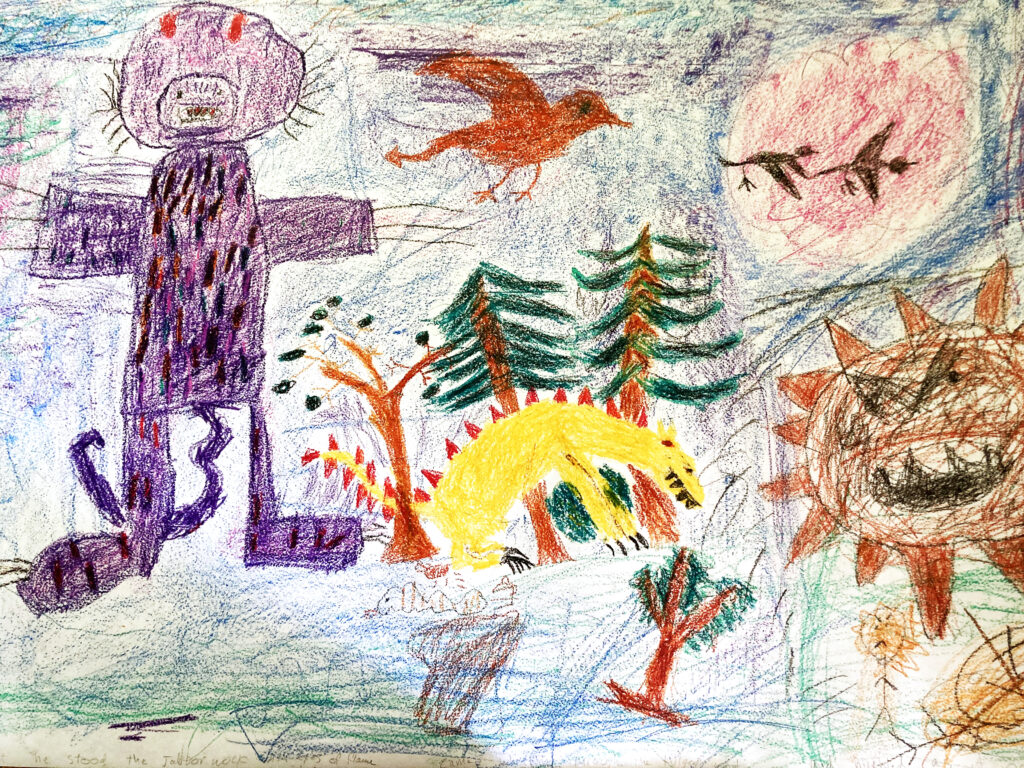
In the almost 20 years since then, I’ve taught dozens of poems by poets living and dead over hundreds of poetry lessons, but I still come back to “Jabberwocky.” We still use it to write adventure poems, and I still lean into the nonsense. I often have my class memorize it—it’s a poem meant to be spoken. Twice, we’ve made crankies—scrolling paper movies made from long pieces of butcher paper cranked on dowels across a frame—of “Jabberwocky,” which we can scroll while reciting the poem in our poetry readings for parents. The strange creatures are super fun to draw.
I’ll haul in my 1982 Compact OED, with its accompanying magnifying glass, and have students look for words that Lewis Carroll coined in the poem (galumphing, chortled, frumious, burbled), and I use it as a jumping-off point to talk about how language is always changing and to wonder if any of us will coin a word that will stick around. After learning from Humpty Dumpty that “outgribing” is “something between bellowing and whistling, with a kind of sneeze in the middle,” we try it ourselves, and once you’ve heard a classroom full of kids—and teachers!—outgribing, you’ll be, to quote Humpty Dumpty, “quite content.”
This poem is a child-friendly cultural artifact that invites critical reflection on things as complicated as colonialism, and this mirror—along with the frabjous nonsense and delight—seems like the point of literature to me.
After all these years, “Jabberwocky” continues to be a hit lesson, but my understanding of the poem in the world has shifted over time. Today, I find I want to explicitly teach it in its context as a Victorian British poem. Yes, even to third-graders. I want to shine a clear light on the worldview of the poem: the fear of the other (“Beware the Jabberwock, my son,”) the celebration of its destruction (“And hast thou slain the Jabberwock? Come to my arms, my beamish boy.“), the absence of women, the kind of violence it asks of men if they want to be beamish boys. I want to talk about how that worldview came from a certain place and time. “Jabberwocky” may be a delightful nonsensical poem, but it is also a product of the British Empire.
So we learn the poem, and we enjoy its delights, and we put it in context. We’ve already talked extensively about the history of English in many of my classes, including why we’re speaking English when we aren’t in England, which means we’ve touched on colonialism and British Imperialism. We can touch in again with this poem. We can talk about whether the Jabberwock needed to be slain just because the father and son were afraid of it and whether there are other ways to be brave and daring. We can explore how things might appear from the point of view of the Jabberwock or the toves. This poem is a child-friendly cultural artifact that invites critical reflection on things as complicated as colonialism, and this mirror––along with the frabjous nonsense and delight––seems like the point of literature to me.
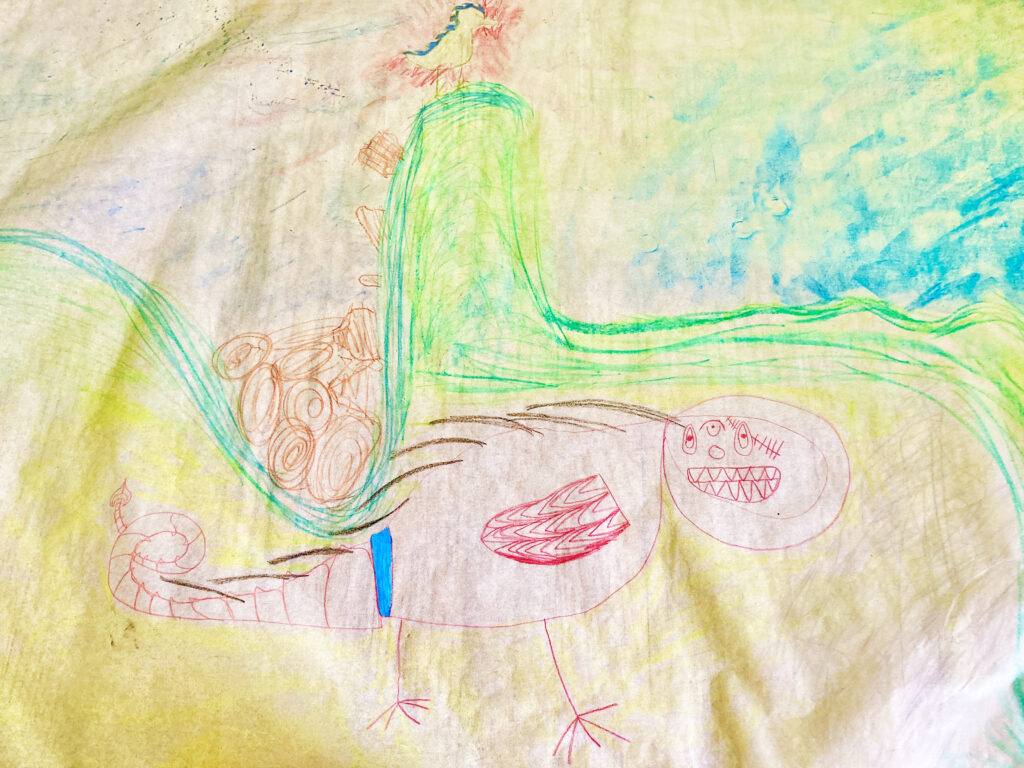
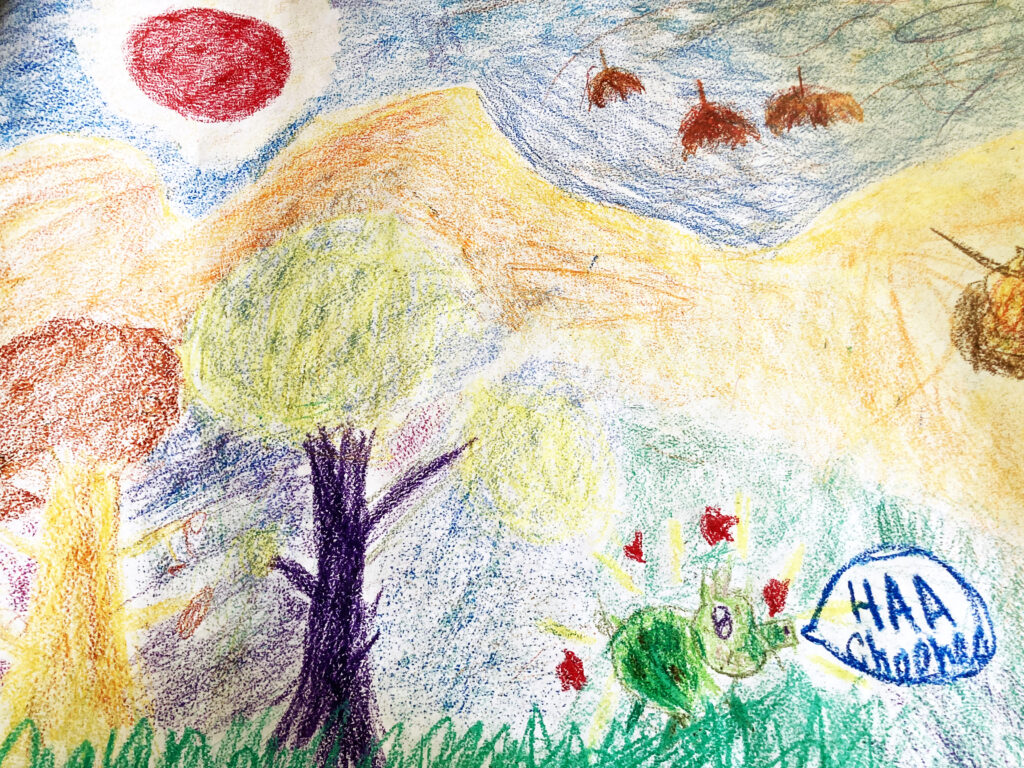
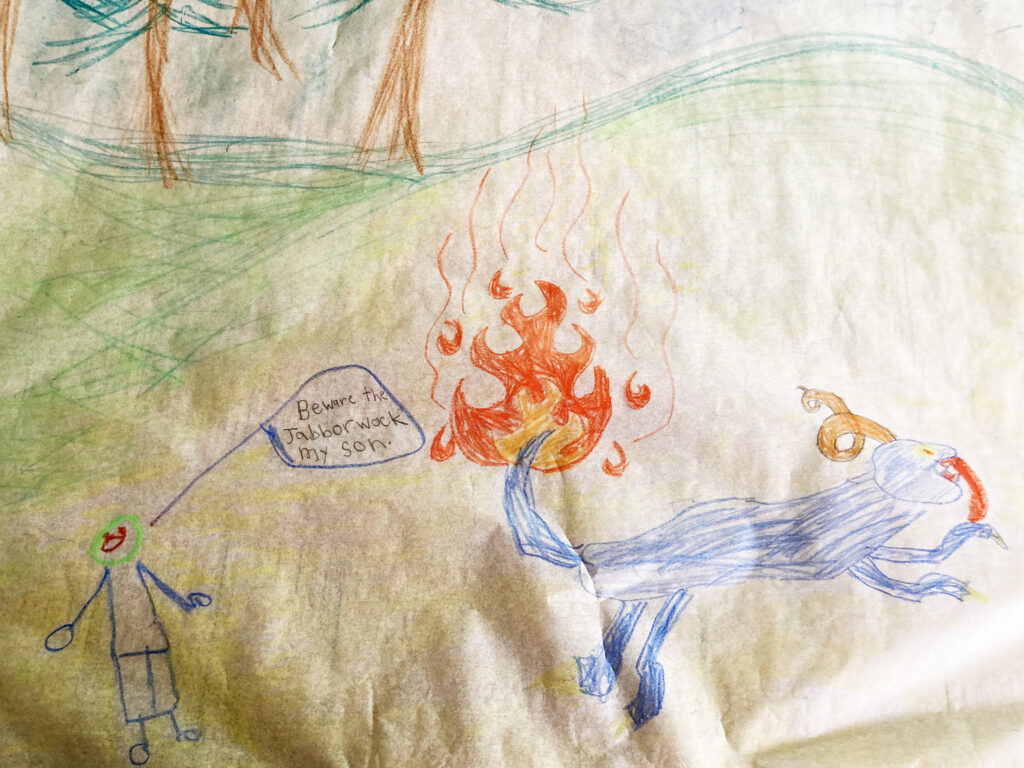
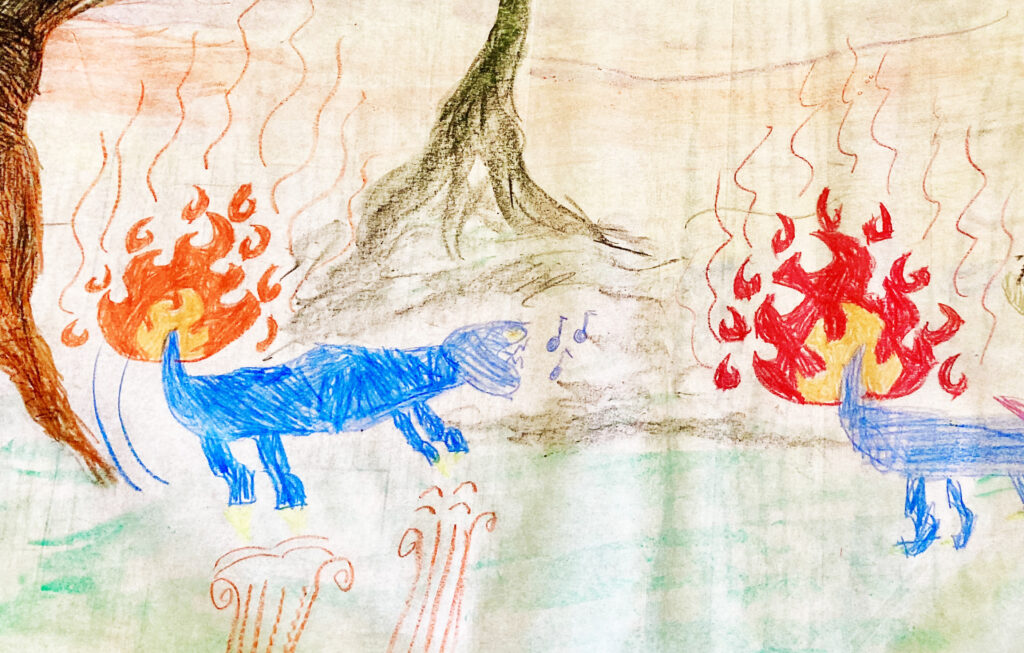

Becca Rose Hall
Becca Rose Hall is the director of Frog Hollow School, a writing program for children offering classes in Seattle and online. She writes the Substack newsletter A Few Crooked Words about helping kids love writing. Her work has appeared recently in Orion Magazine, Third Coast, Mutha Magazine, and Pacifica Literary Review. She has received support from Community of Writers, Writers Lighthouse, Arts Omi, and Zvona i Nari; has been a contributor at Bread Loaf and Sewanee; and was the Writers’ Lighthouse Emerging Fiction Fellow in 2019. She recently finished writing a novel.

